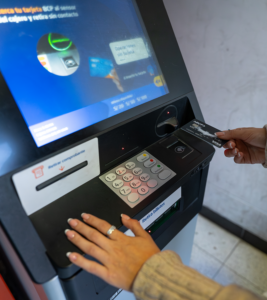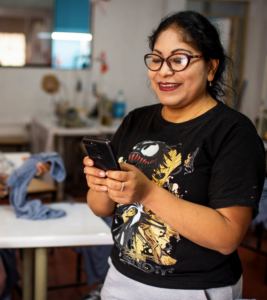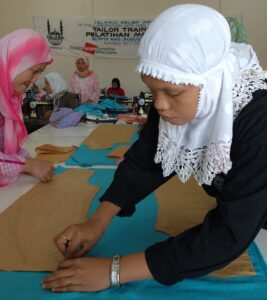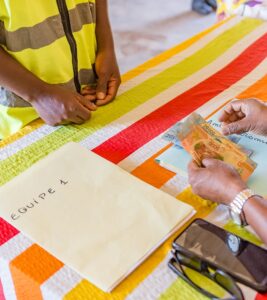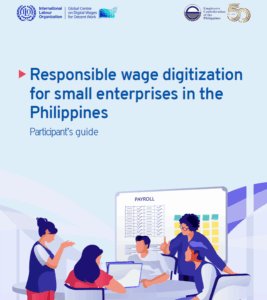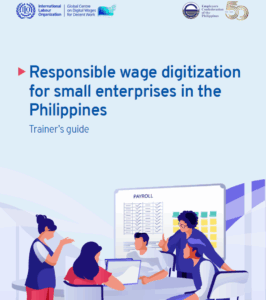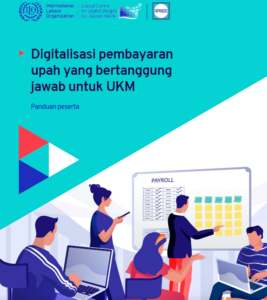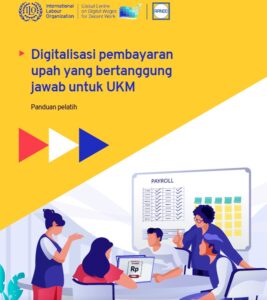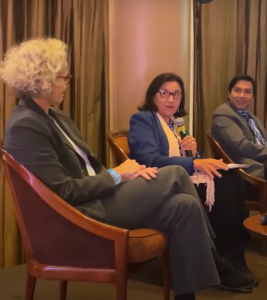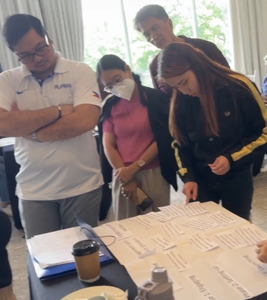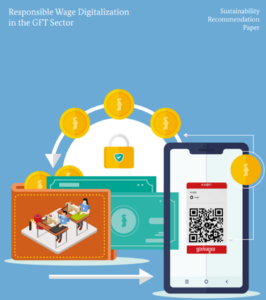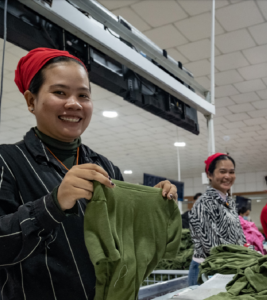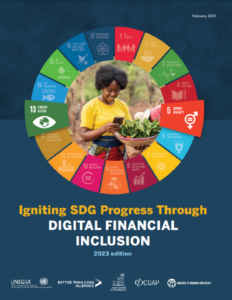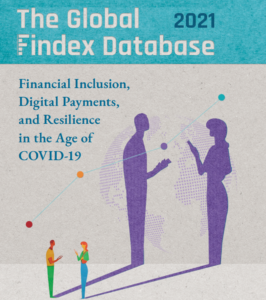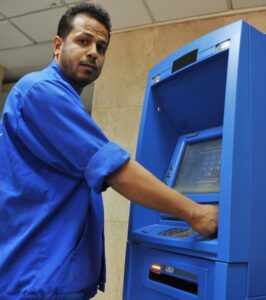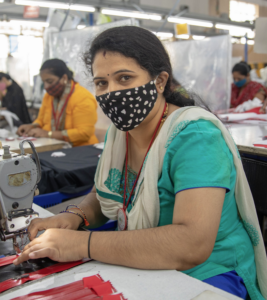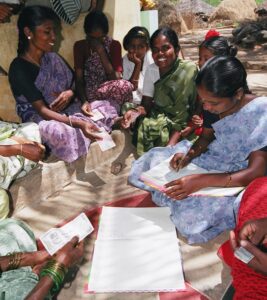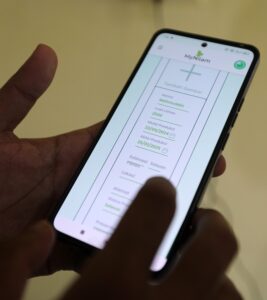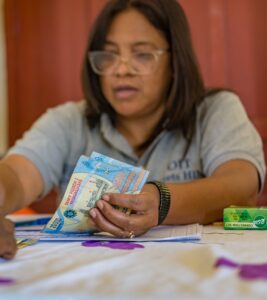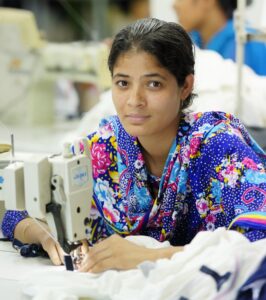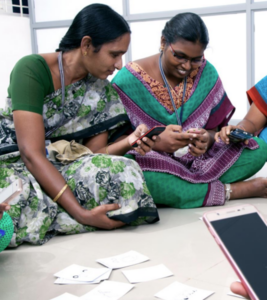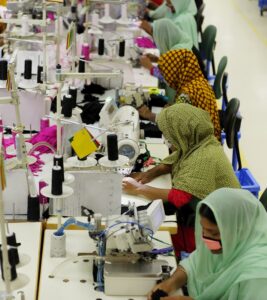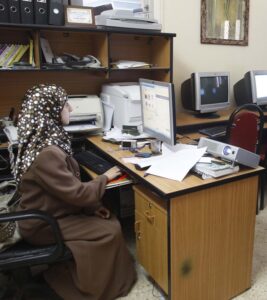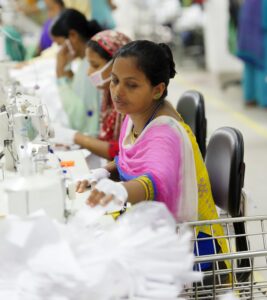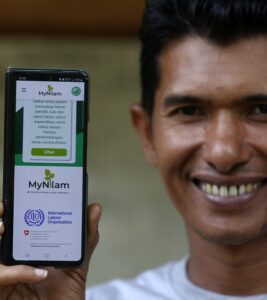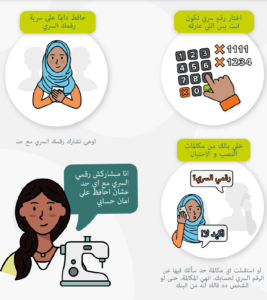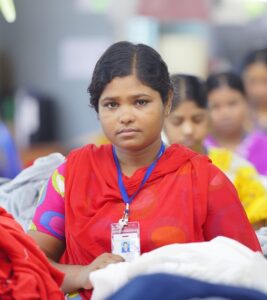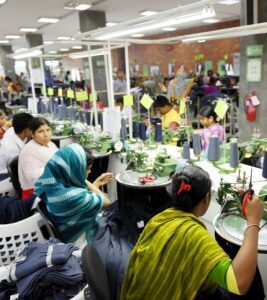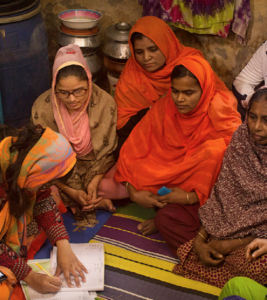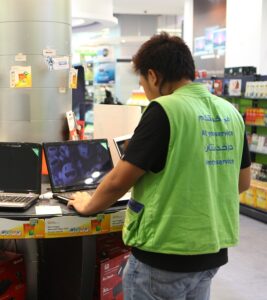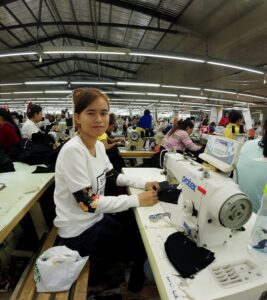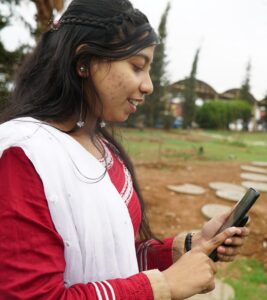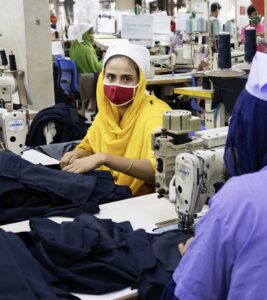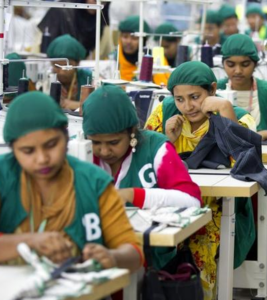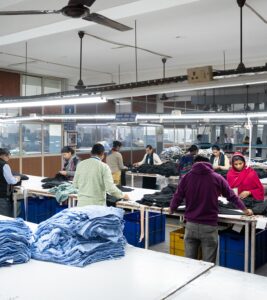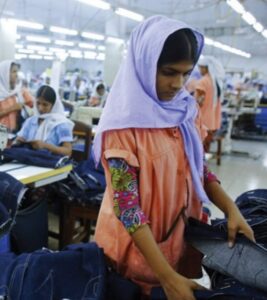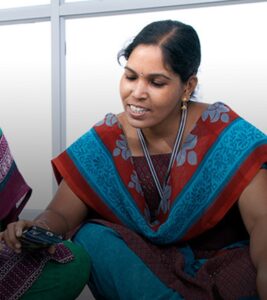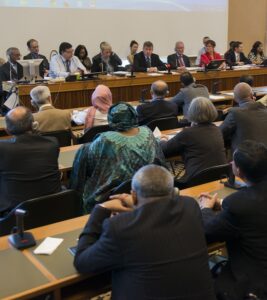Knowledge platform
Our knowledge platform is a one-stop shop providing knowledge, evidence, technical and policy guidance tools, resources to guide actions for supporting transition from cash to responsible digital wage payments with a view to empowering workers and broadening their financial inclusion, enhancing sustainable business practices and improving on the respect for labour rights.
Choose the type, topic, sector, and region of interest of the resources you are looking for!
Filter Clear
Region
Global Africa Americas Arab States Asia and the Pacific Europe and Central Asia Sector
Any Agriculture Industry Services Topics
Digital technology Financial education Gender equality Inclusive finance Sustainable enterprises Workers' rights Publications from partners Evaluation of the electronic payment system in the Thai fishing industry The Leaky Bucket: Transition costs from cash to deposits in a Mexican transfer program Responsible wage digitalization in the GFT sector Responsible Digital Finance Ecosystem (RDFE): A conceptual framework Increasing financial inclusion in Egypt’s garment sector through responsible wage digitalization: Benefits for workers and business Wage digitalization: A path to accelerating financial health for garment workers Improving financial health in Cambodia’s garment sector through responsible wage digitalization: Benefits for women and business Adapting to change: A rapid assessment of the transition to digital wage payment Igniting SDG progress through digital financial inclusion The expanding universe of bilateral labor agreements How are health workers paid and does it matter? Conceptualising the potential implications of digitising health worker payments Impact of digital financial services on economic resilience and savings The Global Findex Database 2021 The potential gains of digitizing garment sector wages in Cambodia Fintech to the (worker) rescue: Earned wage access and employee retention Learning through social networks: How workers optimize the use of fintech for remittances Cheque in: Increasing access to the formal financial system Assessing incentives to increase digital payment acceptance and usage: A machine learning approach Financial competence framework for adults in the European Union Migrant workers’ access to justice for wage theft: A global study of promising initiatives Wage digitization in Egypt’s garment sector: Impact for business, and for female and male workers at Lotus Garments Group Promoting decent work by digitizing wages responsibly in Jordan Advancing digital financial inclusion for garment workers in India: Impact for women and business Garment sector wage digitization: Practical guides Within reach: How digital wages that work for women can support Bangladesh’s economic future Consumer protection for financial inclusion in low- and middle-income countries: Bridging regulator and academic perspectives Digitization for improved governance The impacts of digital financial services on women’s economic empowerment On her own account: How strengthening women’s financial control impacts labor supply and gender norms Women and money: Insights and a path to close the gender gap Responsible digital wages in RMG sector of Bangladesh The rise of ‘fringetech’: Regulatory risks in earned-wage access Digitizing workers payments for economic recovery and decent work: Example of Senegal Earned wage access and the end of payday lending The impact of mobile money on poverty Fintech’s role in exacerbating or reducing the wealth gap Reaching financial equality for women Report on IOE digital wage payments conference Learning to navigate a new financial technology: Evidence from payroll accounts Evidence of digital financial services impacting women’s economic empowerment Towards inclusive digital finance in Indonesia Payday Digitizing for inclusion: Insights from wage digitization in the garment sector Falling through the net II: A survey of basic labour rights among migrants working in Thailand’s fishing sector Digital financial services and the pandemic: Opportunities and risks for emerging and developing economies Advancing women’s digital financial inclusion Accelerating women’s financial inclusion in Bangladesh’s garment sector Education as the bridge from cash to digital wages: Lessons from garment workers in Bangladesh Digital wages: Positive impact for women and business Financial behavior of female garment workers in India Garment workers experience with wage digitization in Bangladesh Cashless pay, deductions from wages, and the repeal of the Truck Acts in Great Britain, 1945-1986 Prospects of wage digitization in the apparel sector Digital Identification & Finance Initiative Africa: An overview of research opportunities Leveraging digital financial solutions to promote formal business participation How workers get paid is changing: Consumer protections need to catch up Enhancing women’s economic empowerment through digital cash transfers: Analysis of the Digitize/Direct/Design criteria applied to the National Rural Employment Guarantee Scheme in Bihar, India ‘Doing dignity work’: Indian security guards’ interface with precariousness Making payroll cards work for employees Financial needs of garment workers in India Closing the gender gap: Opportunities for the women’s mobile financial services market in Bangladesh The future of supply chains: Why companies are digitizing payments Increasing factory worker well-being through digital payroll Driving sales through digital working capital loans for small merchant Increasing partner loyalty through digital payments Increasing supply chain transparency through digital payments Strengthening Mexico’s small merchants through digital payments Improving profitability through digital payments Bank identity: Banks, ID cards, and the emergence of a financial identification society in Sweden Wage protection systems and programmes in the GCC How much does having a bank account help the poor? The introduction of cashless wage payments and the spread of branch banking in post-war Germany The opportunities and challenges of digitizing government-to-person payments Wage digitization in readymade garment (RMG) sector in Bangladesh is crucial for women empowerment, social compliance and competitiveness Digitizing wage payments in Bangladesh’s garment production sector Digitizing worker salary payments: A manual for ready-made garment factories G20 High-Level Principles for Digital Financial Inclusion Saving money, saving lives: Digital payments and the Ebola crisis in Sierra Leone Mobile-izing savings with automatic contributions: Experimental evidence on dynamic inconsistency and the default effect in Afghanistan Credit apartheid, migrants, mines and money The ethics of payments: Paper, plastic, or bitcoin? Pay me how? What you should know about payroll cards Smartphones and mobile money: The next generation of digital financial inclusion The sociality of the wage: Money rhythms, wealth circulation, and the problem with cash on the Zimbabwean-South African border Length of the last mile: Delays and hurdles in NREGA wage payments NREGA wage payments: Can we bank on the banks? The Wages Act 1986: An exercise in employment abuse
Show all
Show less Your search did not match any Publications from partners Legislative, policy, and other measures

